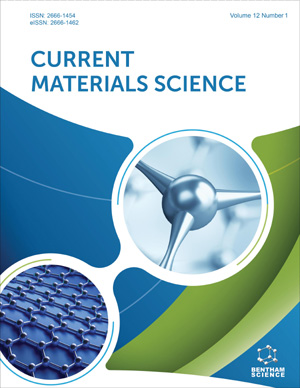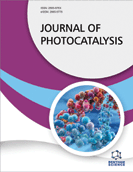Abstract
Background: In the current context of low-carbon environment, it is particularly important to use waste plastics to prepare modifiers that increase the modulus of the bituminous mixture.
Objectives: The study aimed to find out the influence of environment-friendly polymer composite modifier (E-FPCM) on modulus and pavement performance of bituminous mixture.
Method: The influence of the optimum component E-FPCM on the dynamic modulus (DM) has been explored. The E-FPCM content’s effect on the rheological properties of bitumen has been analyzed. Also, the influence of E-FPCM on pavement performance has been analyzed.
Results: The degree of influence on SR of bituminous mixture has been in the order of recycled low-density polyethene (R-LDPE) > aromatic oil > lignin fiber. The optimum composition of E-FPCM has been found to be 10% aromatic oil, 4.8% C9, 62% R-LDPE, 7.0% lignin fiber, 0.2% antioxidant 1076, 2% silane coupling agent, and 14% mineral powder. By using E-FPCM with the optimum components, the SBS bituminous mixture or 90# bituminous mixture has been found to meet the standard of a high-modulus bituminous mixture (HMBM). E-FPCM has been found to reduce the phase angle (δ) of bitumen and increase the complex shear modulus (G∗) and rutting factor [G∗/sin(δ)], which may help improve the rutting resistance (RR).
Conclusion: E-FPCM is beneficial for improving the RR of the bituminous mixture, and reasonable content of E-FPCM has a great role in improving the water stability (WS) and low-temperature crack resistance (LTCR) of the bituminous mixture.
[http://dx.doi.org/10.3389/fenrg.2020.00058]
[http://dx.doi.org/10.1016/j.heliyon.2020.e05131] [PMID: 33024850]
[http://dx.doi.org/10.1007/s42114-021-00317-x]
[http://dx.doi.org/10.3390/polym14081589] [PMID: 35458340]
[http://dx.doi.org/10.1016/j.resconrec.2021.105894]
[http://dx.doi.org/10.1007/s10311-021-01384-8] [PMID: 35039752]
[http://dx.doi.org/10.1016/j.jclepro.2019.04.019]
[http://dx.doi.org/10.1016/j.conbuildmat.2021.122492]
[http://dx.doi.org/10.1016/j.jclepro.2020.124286]
[http://dx.doi.org/10.1016/j.scitotenv.2022.153973] [PMID: 35183624]
[http://dx.doi.org/10.1016/j.conbuildmat.2022.126615]
[http://dx.doi.org/10.1016/j.jclepro.2020.121447]
[http://dx.doi.org/10.1016/j.conbuildmat.2019.117594]
[http://dx.doi.org/10.1080/10298436.2023.2165657]
[http://dx.doi.org/10.1016/j.conbuildmat.2019.117653]
[http://dx.doi.org/10.1007/s13369-021-06550-2]
[http://dx.doi.org/10.3390/coatings11121502]
[http://dx.doi.org/10.1016/j.conbuildmat.2019.01.170]
[http://dx.doi.org/10.1016/j.conbuildmat.2021.124835]
[http://dx.doi.org/10.1080/14680629.2018.1536611]
[http://dx.doi.org/10.1016/j.conbuildmat.2019.06.019]
[http://dx.doi.org/10.1016/j.conbuildmat.2021.124740]
[http://dx.doi.org/10.1155/2020/8795429]
[http://dx.doi.org/10.1016/j.jclepro.2021.130120]
[http://dx.doi.org/10.19922/j.1009-7767.2023.07.077]
[http://dx.doi.org/10.3390/ma16031017] [PMID: 36770022]
[http://dx.doi.org/10.1016/j.conbuildmat.2019.04.241]
[http://dx.doi.org/10.1016/j.conbuildmat.2019.07.191]























